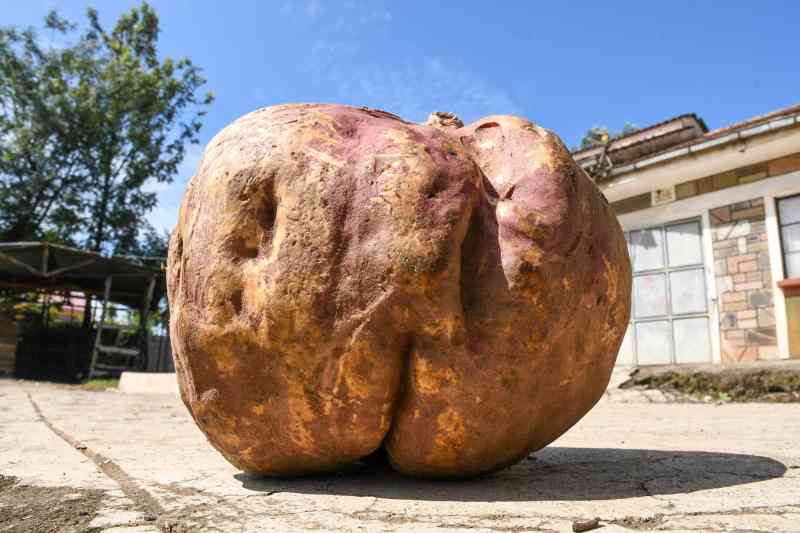×
The Standard e-Paper
Fearless, Trusted News

11-kilogram sweet potato harvested from Manoah Kilach's farm in Ngata, The variety of sweet potato, called Kenspot One, was sourced from the Kenya Agricultural and Livestock Research Organization (KALRO) Nakuru County, on November 13, 2024. [Kipsang Joseph,Standard]
It's only 9:30am, but the sun is already casting a warm golden hue across the Ngata area in Nakuru County.